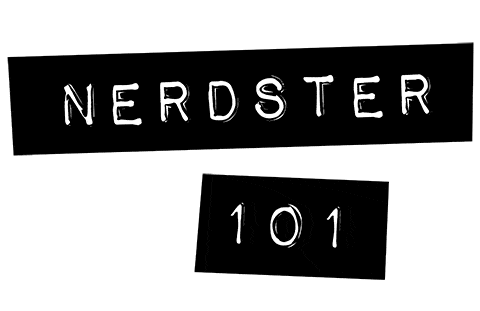Introduction
“1984 by George Orwell is a powerful dystopian novel that presents a chilling view of the future under a totalitarian regime. This brief summary will dive into its gripping narrative, Orwell’s incisive commentary on totalitarianism, and the profound impact of the book’s thought-provoking themes.”
“Who controls the past controls the future. Who controls the present controls the past.”
– 1984, George Orwell
Book Information
Title: “1984” Author: George Orwell
First Published: 1949
Genre: Dystopian Fiction,
Political Fiction Setting: Airstrip One, Oceania (formerly known as Great Britain)
Brief Overview
“1984” portrays a society completely controlled by a totalitarian government, known as The Party, led by Big Brother. The protagonist, Winston Smith, grapples with his suppressed individuality and critical thought.
Background
Author’s Background
George Orwell, born Eric Arthur Blair, was a renowned English novelist and essayist known for his incisive social commentary. His works, such as “Animal Farm” and “1984”, are celebrated for critiquing totalitarian regimes.
Publication Context
“1984” was Orwell’s last novel, published in the post-World War II era, at a time when totalitarian states had become a reality. Its grim depiction of societal control is seen as a critique of Stalinist Russia.
Character Summary
Main Characters
- Winston Smith: A low-ranking member of The Party who begins to question the regime.
- Julia: A fellow Party member who becomes Winston’s lover and accomplice in rebellion.
- Big Brother: The omnipresent and omniscient figurehead of The Party.
- O’Brien: A high-ranking Party member who becomes central to Winston’s downfall.
Character Development
Winston evolves from an obedient Party member to a rebellious individual yearning for freedom and truth. Julia, initially perceived as a conformist, is revealed to be a subtle dissenter. O’Brien’s character unfolds as a deceptive and ruthless Party loyalist.
Plot Summary
Overview
The narrative follows Winston’s life in a society where The Party controls every aspect of life. He embarks on a clandestine rebellion against The Party, spurred by his relationship with Julia, only to face severe consequences.
Setting
The story is set in Airstrip One, formerly London, in the superstate of Oceania, where society is under constant surveillance.
Themes and Motifs
Key Themes
The dominant themes are totalitarianism, censorship, and the suppression of individuality and critical thought.
Motifs and Symbols
Big Brother, the telescreens, and the concept of doublethink are recurring symbols embodying control, surveillance, and the manipulation of reality, respectively.
Takeaway Morals
Morals
The novel warns against the perils of absolute power, the loss of individuality, and the importance of truth and freedom.
Application
“1984” continues to resonate today, cautioning us about unchecked government surveillance, propaganda, and the erosion of personal freedoms.
Analysis
Literary Devices
Orwell uses irony, foreshadowing, and imagery to underscore the oppression of the totalitarian regime. He also employs the dystopian genre as a warning against potential political extremes.
Style and Tone
Orwell’s writing style in “1984” is clear and direct, with a somber and ominous tone that evokes a sense of dread and despair.
Critical Reception
Initial Reception
“1984” received critical acclaim for its thought-provoking content. Readers and critics were captivated by Orwell’s stark portrayal of a totalitarian society.
Current Standing
The book has retained its relevance and acclaim, often hailed as a classic in dystopian literature and political commentary.
Personal Response
Personal Opinion
It’s as if Orwell took a peek into the future and said, “Beware! This could be your reality!” Let’s just say, after reading “1984”, I developed a slight phobia of cameras and, well…big brothers!
Recommendation
Would I recommend “1984”? A thousand times yes! But maybe not as a bedtime story – it’s best not to dream of Big Brother watching!
About the Author
Biography
George Orwell, born on June 25, 1903, in Motihari, India, to British parents, was a critic of totalitarianism. His works were influenced by his experiences as a colonial police officer and his stance against fascism and communism.
Literary Career
Orwell’s works include “Animal Farm”, “Homage to Catalonia”, and numerous essays. His distinct literary style and sharp social commentary have solidified his place as one of the 20th century’s greatest writers.
Book Details
Publication Details
“1984” was published in 1949 by Secker & Warburg in London.
Structural Details
The novel is divided into three parts and spans approximately 328 pages.
Conclusion
Summary
“1984” remains a powerful exploration of societal control and individual defiance. Its stark depiction of a totalitarian regime continues to resonate today.
Final Thoughts
Through “1984”, Orwell leaves us contemplating the value of freedom, truth, and the human spirit in the face of oppressive regimes.
-
Père Goriot, by Honoré de Balzac – Quick Book Summary
-
The Wind-Up Bird Chronicle, by Haruki Murakami – Quick Book Summary
-
The Sorrows of Young Werther”, by Johann Wolfgang von Goethe – Quick Book Summary
-
A Room of One’s Own, by Virginia Woolf – Quick Book Summary
